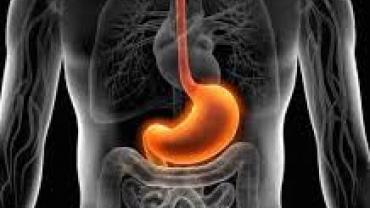
Acid reflux is one of the most common digestive issues driving patients to see doctors. All too often the “solution” is a prescription for high-strength antacids typically proton pump inhibitors. After all if someone is experiencing acid reflux then they must be producing too much stomach acid. So much in fact that some of it is forcing its way up into the esophagus. This logic is bolstered by the fact that many people experience relief from the uncomfortable symptoms of “heartburn” when they take acid blocking drugs. This makes sense on paper but diving a little deeper it’s clear that excessive stomach acid is not always the cause of reflux. In fact it may be just the opposite: too little stomach acid.
Reflux occurs when the lower esophageal sphincter (LES between the esophagus and the upper portion of the stomach) becomes overly loose allowing stomach contents to move upward back into the esophagus. The problem therefore is not excess hydrochloric acid but rather a weakened LES. There are certain foods that may weaken the LES such as chocolate peppermint and alcohol. Food timing and post-meal activities are also factors. Individuals with an already weakened LES are advised not to consume large meals shortly before bed since lying down can increase the pressure on the LES and cause reflux. Reclining in general after a meal may have the same result. It might not be comfortable for people to watch TV while sitting upright after dinner but this position may give gravity a leg up in warding off reflux.
Another factor that may exacerbate acid reflux is obesity—specifically abdominal obesity where fat is mainly carried at the midsection. A larger concentration of body mass in the abdominal area means increased pressure on the LES with greater reflux being an obvious potential consequence. Certainly not all overweight individuals experience reflux and plenty of lean individuals do. So excess body weight is not an ironclad cause of reflux; it’s simply one among many contributors that could be addressed if an overweight patient experiences frequent heartburn.
There are of course foods that exacerbate acid reflux. But it’s important to note that they do just that—exacerbate but not cause—the issue. At the top of the list are acidic foods such as citrus fruits tomatoes and coffee. Alliums—which include garlic onions and shallots—may also be a factor. The acidity and irritating potential of these foods do not cause reflux. When the LES is already weakened these foods may be particularly irritating to the esophagus which unlike the stomach is not coated in a layer of protective mucus.
Elimination diets have had some efficacy in relieving heartburn and indigestion. Individuals who adopt Paleo or “Primal”-style diets often experience complete relief suggesting that refined grains damaged oils and processed foods may contain LES-offending elements. Patients who experience acid reflux may benefit from keeping a food log which could help them identify foods that trigger episodes of heartburn specifically and indigestion more broadly.
An additional factor that may result in acid reflux is hiatal hernia. Again it is unlikely that a hernia is the initial cause of reflux but it may be a potentiating force upon an already weakened LES. Large hernias may impair timely esophageal emptying resulting in prolonged acid exposure after an incidence of reflux. This would be especially true in the supine position again hinting at the importance of remaining upright for some time after a meal.
When food sensitivities psychological stress body weight alcohol intake cigarette smoking and anatomical issues have been addressed and/or ruled out and an individual still suffers from unpleasant acid reflux an additional factor to explore is delayed gastric emptying. As mentioned earlier this is often due to insufficient rather than excessive stomach acid. With inadequate HCl food—in particular protein—is not broken down sufficiently to trigger the opening of the pyloric sphincter which would allow food to move from the stomach into the duodenum. As food remains in the stomach for an extended amount of time the proteins may putrefy and carbohydrates may ferment resulting in increased pressure upon the LES. The remedy for this would not be acid blocking drugs but rather increased acidity in the stomach delivered in the form of HCl supplements or perhaps lemon juice or vinegar taken with meals.
Due to its multiple causes acid reflux can be difficult to treat. It’s not as simple as quitting coffee and avoiding spicy takeout food. Some cases may require a multi-pronged strategy to keep symptoms at bay including targeted supplementation lifestyle modifications and the identification of triggering foods.
Related DFH Products-
For Related Resource Information please listen to our Nutrient Roundtable: